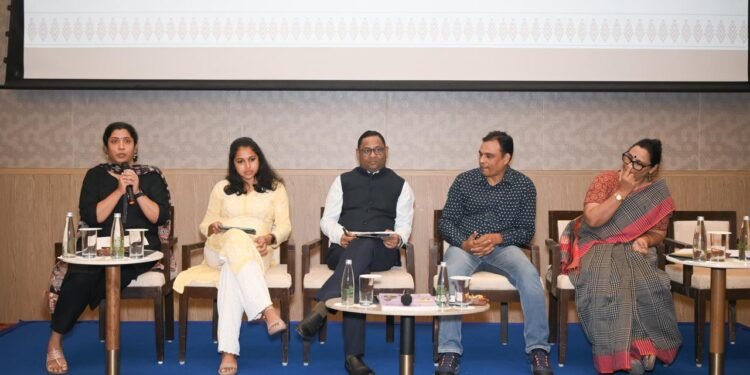BHUBANESWAR- To discuss how to build shared, ground-up narratives around Commons governance, rural equity, forest rights, and effective stewardship, a two-day-long workshop on ‘Communicating the Commons in Odisha ‘was held on July 3-4 in Bhubaneswar. Organised by Voluntary Integration for Education and Welfare of Society (VIEWS), the event focused on the powerful role of storytelling in shaping public discourse and supporting local communities in managing their shared natural resources, often referred to as ‘Commons’—including forests, pastures, and wetlands.
Discussions at the workshop revealed vital insights into the value and challenges facing Odisha’s Commons. The state boasts vast natural assets, including 2.98 lakh hectares of estuaries, 79,000 hectares of the Chilika lagoon, and 480 km of coastline, alongside extensive inland Commons like ponds, reservoirs, and rivers. These resources are crucial for long-term climate resilience, especially in a state that has endured 262 cyclonic disturbances in the past century. An economic valuation study highlighted the immense benefits derived from these Commons, with ecosystem services estimated to be worth approximately ₹36,890 crore annually. This data underscores that Commons function as vital economic assets and essential climate-adaptation infrastructure. Participants identified key priorities, including securing community tenure through the full enforcement of laws like the Forest Rights Act and PESA, fostering cross-departmental collaboration, and adopting a justice-centered approach to coastal Commons to protect traditional fishers’ rights and local knowledge.

A central theme emerged from the workshop was the profound importance of storytelling. As Dr. Sisir Kanta Pradhan of Common Ground explained, “Commons are not relics of the past; they are living infrastructure worth tens of thousands of crores each year. Telling their stories with accuracy and urgency is the first step toward safeguarding Odisha’s ecological and economic future.” The workshop emphasized that stories matter because they capture the lived realities and wisdom of Commons stewards, bridge the gap between policy and practice by revealing the real costs of inaction, and shape public discourse towards more equitable and ecological futures. Sunita Muduli, a former sarpanch from Koraput, powerfully articulated the community perspective: “When we protect our forest and water sources, we are not just managing resources, we are exercising our right to govern ourselves. The Commons are not wastelands; they are our lands, protected by our decisions, our customs, and our collective care.” This successful gathering marks the launch of a dedicated community of practice committed to justice, resilience, and shared stewardship in every story it tells.
The workshop also featured cultural performances, including poetry and songs, and a ‘human library’ showcasing community-led conservation successes.
More than 100 Participants, including writers, folk artists, illustrators, and community radio broadcasters from local to international levels, have attended this workshop.






